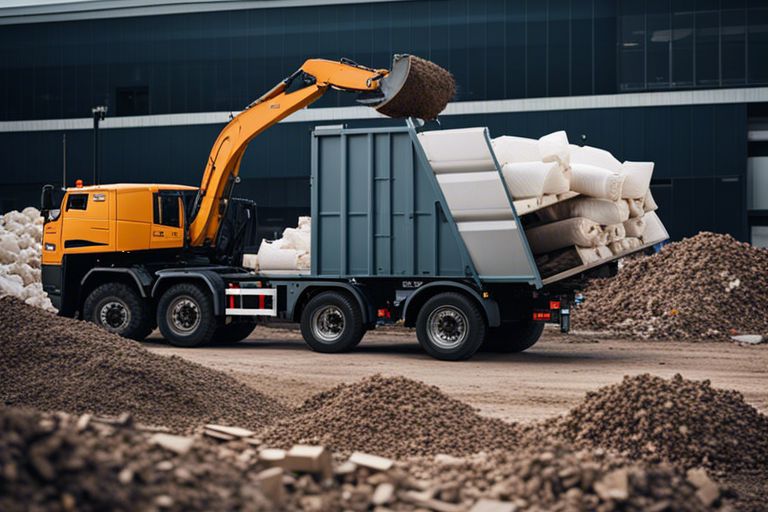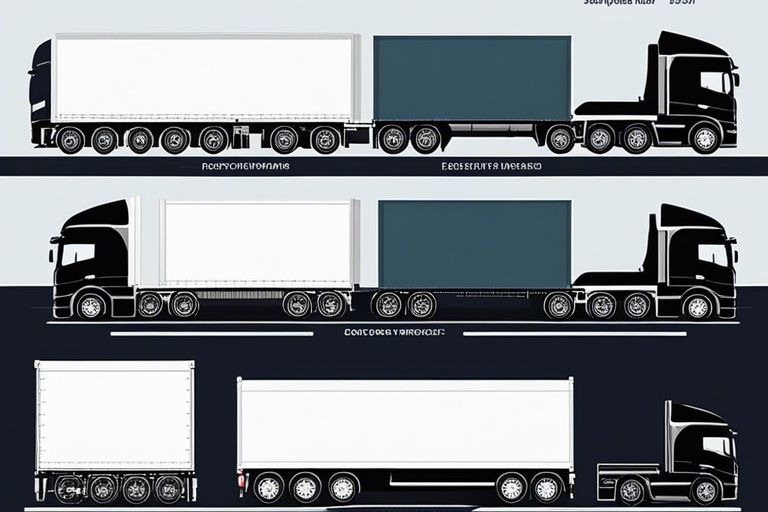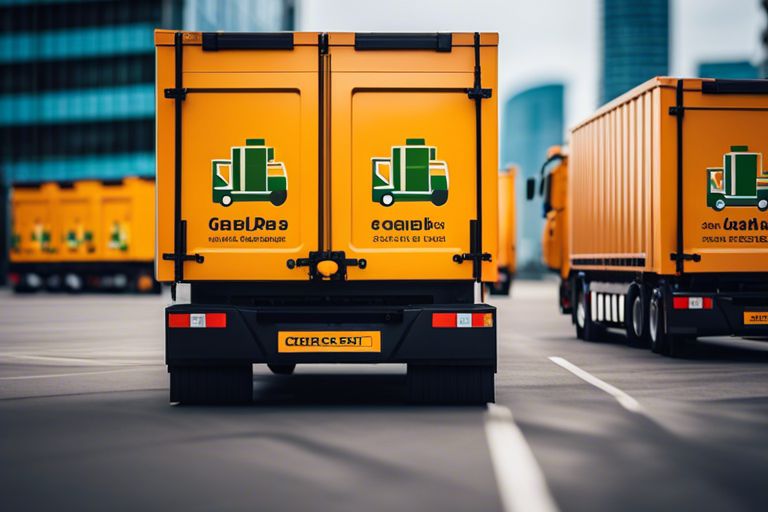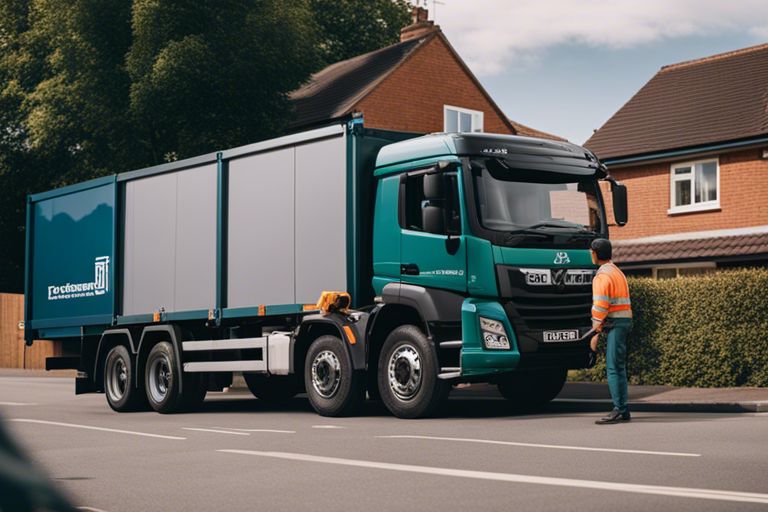It is imperative for all businesses operating in the UK to comprehend their legal obligations regarding waste disposal. Failure to do so can result in hefty fines and damage to the environment. In this blog post, we will delve into the key responsibilities that every business must adhere to when dealing with waste management. From proper sorting and storage to hiring licensed waste carriers, compliance is paramount. Ignoring these responsibilities can pose serious risks to public health and the environment. For more detailed information, refer to the Business waste responsibilities provided by Barnsley Council.
Key Takeaways:
- Legal Obligations: As a business owner in the UK, it is crucial to understand your legal responsibilities for waste disposal. This includes correctly categorising and disposing of different types of waste according to regulations.
- Environmental Impact: Businesses have a significant impact on the environment through their waste disposal practices. Understanding and adhering to responsible waste management can help minimise this impact and contribute to a more sustainable future.
- Financial Implications: Failure to comply with waste disposal regulations can result in hefty fines and damage to your business’s reputation. Taking responsibility for proper waste disposal can save you money in the long run and improve your standing in the industry.
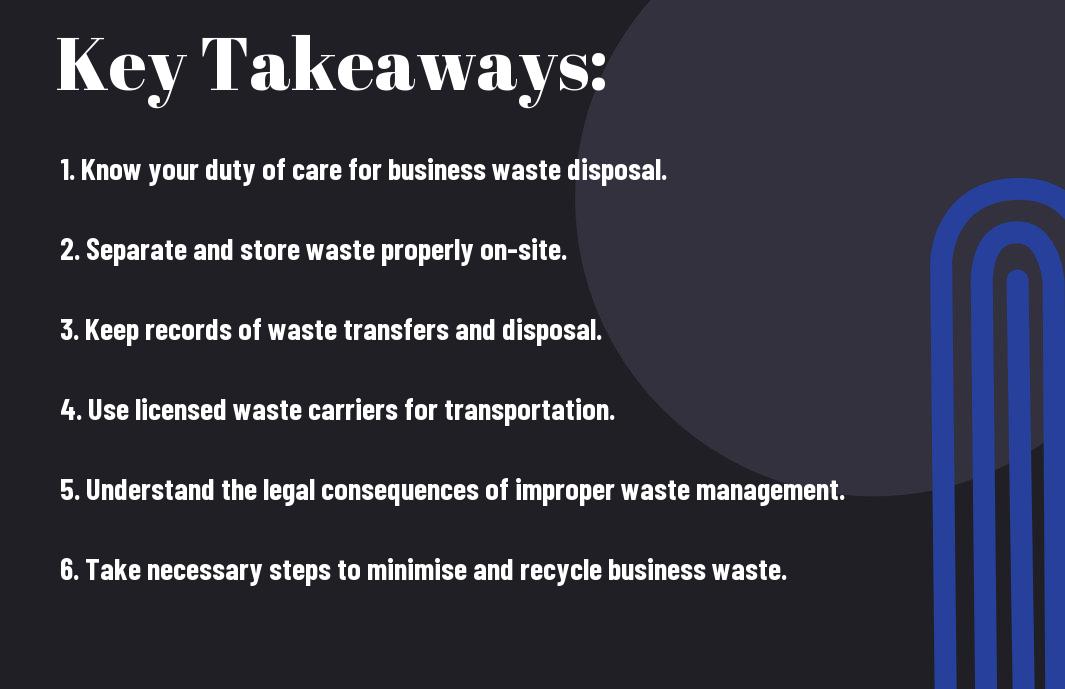
Legal Framework and Regulations
When it comes to business waste disposal in the UK, there are legal frameworks and regulations that businesses must adhere to. Failure to comply with these regulations can result in fines and legal action.
Duty of Care for Waste Management
All businesses in the UK have a legal duty of care for the way they manage their waste. This duty of care extends from the moment the waste is produced to its final disposal. Businesses are required to ensure that their waste is stored, transported, and disposed of safely and responsibly. This includes keeping accurate records of their waste management activities.
Specific Laws Governing Business Waste in the UK
There are specific laws that govern business waste in the UK, such as the Environmental Protection Act 1990 and the Waste (England and Wales) Regulations 2011. These laws outline the legal obligations and responsibilities of businesses in relation to their waste management. They cover various aspects including waste storage, duty of care, and the requirement to use registered waste carriers for transportation.
It is crucial for businesses to familiarise themselves with these specific laws and ensure compliance in order to avoid potential legal consequences. Failure to comply with these laws can result in hefty fines and damage to a business’s reputation. By understanding and adhering to the laws governing business waste, businesses can contribute to a safer and more sustainable environment while avoiding legal repercussions.
Types of Business Waste
When it comes to business waste disposal in the UK, it’s important to understand the different types of waste that your business may produce. Proper classification of waste is crucial for ensuring compliance with waste management regulations and for choosing the appropriate disposal methods.
- General waste: This includes non-recyclable and non-hazardous waste such as paper, packaging materials, and food scraps.
- Hazardous waste: This category includes substances that are potentially harmful to human health or the environment, such as chemicals, oils, and certain types of batteries.
- Construction and demolition waste: Waste generated from construction, renovation, and demolition activities, including materials like concrete, wood, and metal.
- Electrical and electronic waste: This includes discarded electrical and electronic equipment, such as computers, printers, and televisions.
- Green waste: Organic waste from gardening and landscaping activities, such as grass clippings, leaves, and prunings.
Knowing the specific category of waste your business produces is essential for implementing appropriate waste management practices.
Hazardous Waste and its Disposal Requirements
Hazardous waste poses significant risks to human health and the environment. As a result, businesses that produce hazardous waste are subject to strict disposal regulations in the UK. This includes obtaining the necessary permits and using authorised waste disposal facilities. Failure to comply with these requirements can lead to severe penalties and harm to the environment.
It is crucial for businesses to accurately identify and segregate hazardous waste from other types of waste to ensure proper disposal. Additionally, businesses must keep detailed records of hazardous waste production and disposal activities, as traceability is a key aspect of compliance with hazardous waste regulations.
Non-Hazardous Waste and Best Practices
While non-hazardous waste may not pose immediate risks to human health or the environment, it still requires responsible management. Implementing best practices for the handling and disposal of non-hazardous waste is essential for minimising the environmental impact and maximising potential for reuse and recycling.
Businesses can explore options such as source reduction, reuse of materials, and recycling programmes to manage non-hazardous waste in an environmentally responsible manner.
Proper disposal of non-hazardous waste not only contributes to sustainable waste management but also demonstrates a business’s commitment to corporate social responsibility and environmental stewardship.
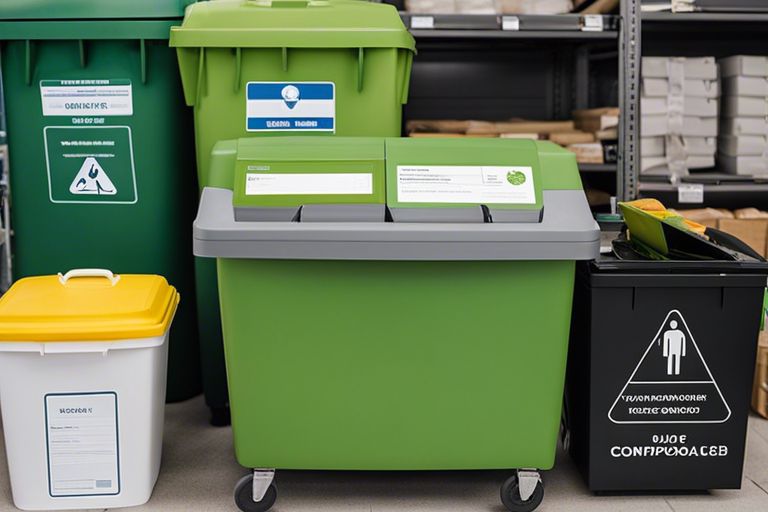
Practical Steps for Managing Business Waste
When it comes to managing business waste, there are several practical steps that businesses in the UK need to take in order to comply with waste disposal regulations. One of the most important aspects of managing business waste is understanding your responsibilities for waste disposal in the UK. For more information on business waste collections and responsibilities, visit Business waste collections and responsibilities.
Waste Minimization and Prevention Strategies
Implementing waste minimization and prevention strategies is a crucial step in managing business waste. By reducing the amount of waste produced, businesses can save resources and reduce their environmental impact. This can be achieved through measures such as reducing packaging, using reusable materials, and implementing more efficient production processes.
Recycling, Recovery, and Disposal Options
Businesses have a responsibility to effectively manage their waste through recycling, recovery, and disposal options. It is important to segregate different types of waste for recycling, ensure that hazardous waste is disposed of safely, and consider alternative waste disposal methods such as energy recovery. Proactive waste management not only reduces the impact on the environment but also contributes to a positive corporate image.
For businesses operating in the UK, understanding the various recycling, recovery, and disposal options available is essential for compliance with waste disposal regulations. By considering the best options for their specific waste streams, businesses can effectively manage their waste while minimising their environmental impact and maximising resource efficiency.
Case Studies and Compliance Insights
In this chapter, we will delve into real-life case studies and compliance insights to understand the complexities of business waste disposal in the UK. These examples will shed light on the challenges faced by businesses and the best practices to ensure compliance.
- Case Study 1: A manufacturing company in Birmingham reduced their waste disposal costs by 30% after implementing a comprehensive recycling programme. Disposing of Business waste – what are the rules? – Clearway
- Case Study 2: A small retail business in London was fined £5,000 for improper disposal of hazardous waste. The lack of proper documentation and containment led to severe penalties.
- Case Study 3: A restaurant chain in Manchester successfully partnered with a waste management company to reduce food waste by 40% through an effective composting initiative.
Success Stories of Effective Business Waste Management
Several businesses across the UK have demonstrated remarkable success in managing their waste responsibly. By prioritising recycling, implementing efficient waste segregation, and seeking innovative waste management solutions, these businesses have not only reduced their environmental impact but also saved significant costs in the process.
One prime example is a large supermarket chain that successfully diverted 90% of its waste from landfill through implementing a robust recycling and waste reduction strategy.
Common Compliance Issues and How to Avoid Them
Despite the regulations in place, businesses often face compliance issues with regards to their waste disposal practices. Common issues include improper waste documentation, incorrect disposal methods for hazardous materials, and inadequate containment measures. These issues can lead to substantial fines and reputational damage.
It is imperative for businesses to stay updated with the latest regulations and seek professional guidance to ensure compliance. Proper training and education for staff, regular compliance audits, and proactive engagement with waste management experts are crucial steps to avoid compliance issues.
For more information on common compliance issues and how to avoid them, visit Disposing of Business waste – what are the rules? – Clearway
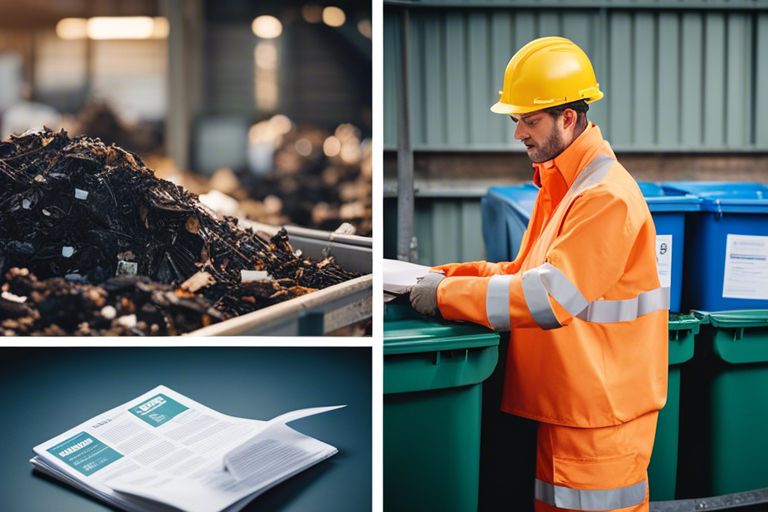
Understanding Your Responsibilities for Business Waste Disposal in the UK
It is crucial for all businesses operating in the UK to fully understand their responsibilities when it comes to waste disposal. The proper handling and management of business waste not only ensures compliance with environmental regulations but also reflects a commitment to corporate social responsibility. By acknowledging and fulfilling their obligations, businesses can contribute to the reduction of environmental impact and the promotion of sustainable waste management practices. Understanding these responsibilities empowers businesses to make informed decisions that benefit both the environment and their bottom line. It is essential for all business owners and managers to stay informed and up to date with the latest regulations and best practices to effectively manage their waste disposal responsibilities in the UK.
Understanding Your Responsibilities for Business Waste Disposal in the UK
Q: What is considered business waste?
A: Business waste includes any waste generated from commercial or industrial activities, such as packaging, food waste, and office equipment.
Q: What are my legal responsibilities for business waste disposal in the UK?
A: As a business owner, you are legally responsible for ensuring that your waste is managed and disposed of properly, following the guidelines outlined in the Environmental Protection Act 1990 and the Duty of Care regulations.
Q: How should I store and manage business waste on my premises?
A: You must store your business waste securely and in appropriate containers, and ensure that it does not cause any harm to the environment or human health. It is important to separate different types of waste and clearly label containers.
Q: Can I dispose of business waste in the regular household waste collection?
A: No, you must arrange for a licensed waste carrier to collect and dispose of your business waste. It is illegal to dispose of business waste with regular household waste.
Q: What are the consequences of not complying with business waste disposal regulations?
A: Failure to comply with business waste disposal regulations can result in fines, legal action, and damage to the environment. It is important to understand and fulfil your responsibilities to avoid legal and financial repercussions.


